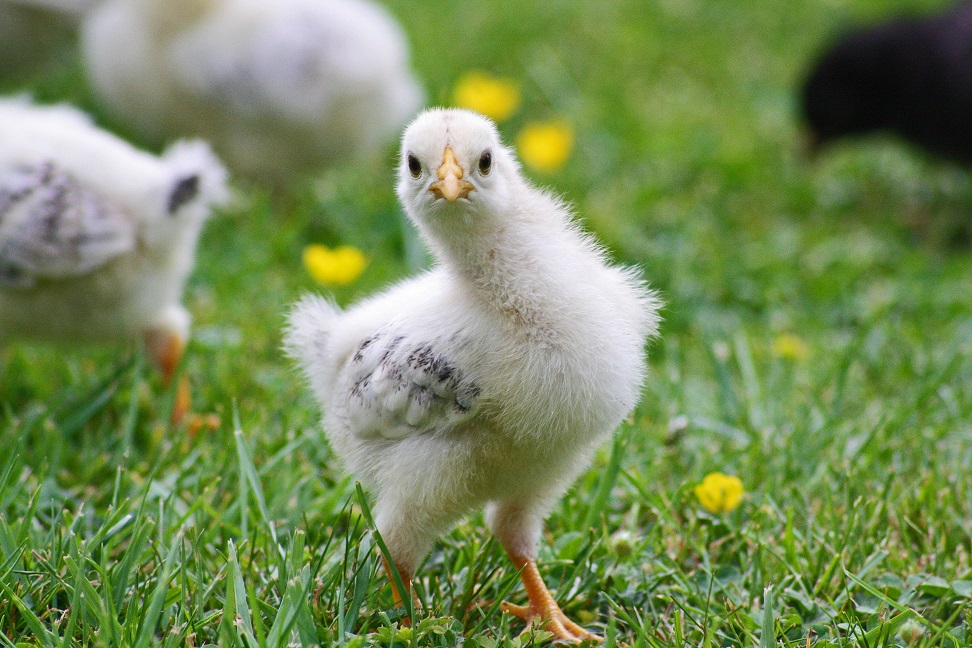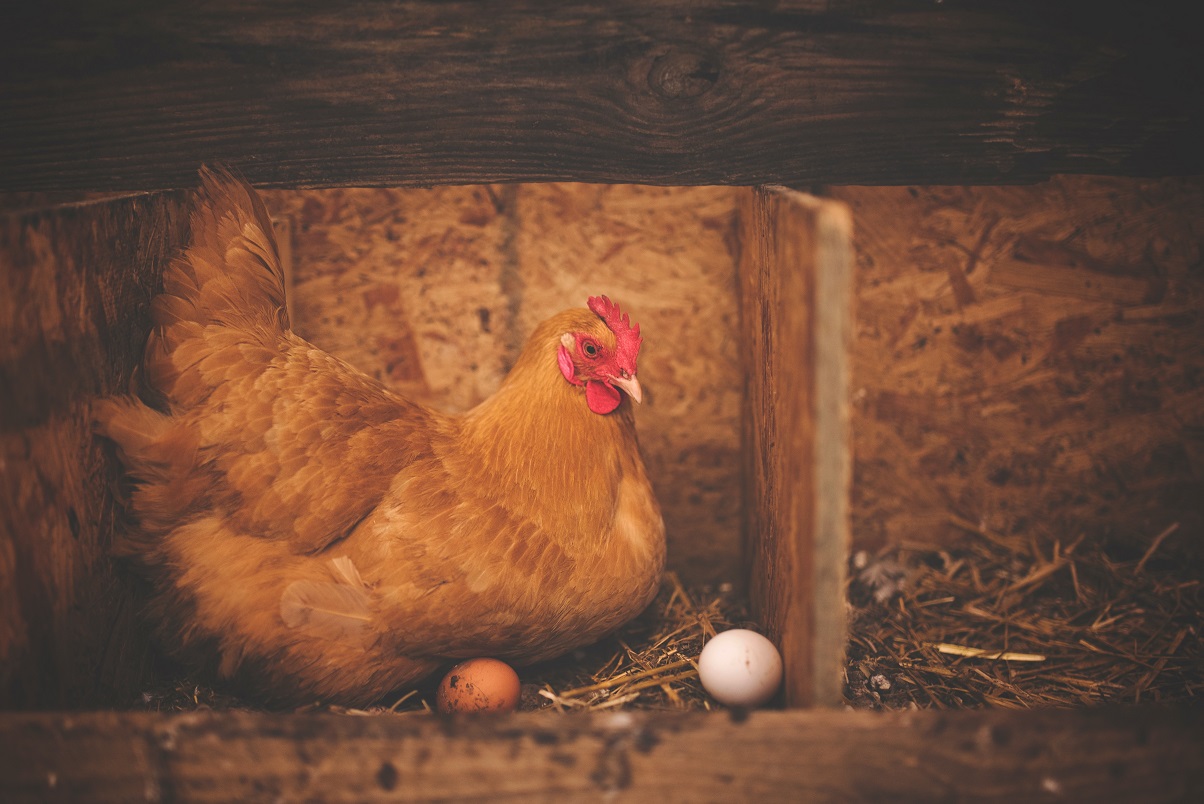Chicken Coops and Raising chickens is the topic that’s been on our minds this week! So we decided, why not gather some info and share it with you!
Chicken farming is a way of putting bread on the table for many South African entrepreneurs. It’s a way to make money from the backyard of many people, especially in rural areas. We know that many people are looking at starting their own chicken farms, whether it is backyard chickens or if you have a farm and you’re ready to get going with a massive project. We’re here to give you all the information you need when thinking about starting a chicken farm!
Chicken Breeds
In Southern Africa, we have many different breeds of chicken. The “Backyard Chicken” is mainly listed as a “free range chicken”. This is due to the fact that they can roam free during the day, and be directed into their coops at night.
Here is a list of the most common free range chickens in South Africa:

- Blue Orpington
- Splash Orpington
- Buff Orpington
- The Gold Laced Orpington
- Potch Koekoek
- Australorps
- Venda
- Silkies
- Lohman Hybrids
- Hylines
- The silver and Gold Laced Pekins
- Goslings
- Borschvelders
“The most common poultry breeds available in South Africa can be divided into two groups:
-
Multi-purposed indigenous chickens, ideal for a free-range environment, especially rural communities. Breeds include Naked Neck, Venda, Ovambo, Potchefstroom Koekoek and Natal Game. Other European breeds such as the New Hampshire, Rhode Island Red and the Black Australorp, all can survive in this environment, although generally more susceptible to certain diseases and not as hardy.
-
Breeds that are used in an intensive system for either meat or egg production. Ross and Cobb are the most common for meat production, while Hi-Line or Lohmann are the best egg producers.” – Wicked Food Earth
When thinking about breeding chickens you need to look at each of these chicken breeds to decide whether or not they will be suitable for your purposes. You can get more information on the chicken breeds on Wicked Food Earth.
How to raise Chicken
Here are five basic things you need to know before you start raising your chicks. (Adapted from Becky’s Homestead’s video above)
Number 1: Build your your chicken coops before buying chickens.
Making sure that your chickens will have a happy, healthy place to live in, is one of the most important factors of any type of chicken farming. Whether it is backyard chicken farming or on a major scale, your chickens will be better adjusted and more manageable when they have a coop that is comfortable and where they feel safe.
We highly recommend using CCA Treated Timber for the construction of your chicken coop. CCA Treated Timber will last at least 15 years, which puts less stress on you to rebuild the coop every year after the rainy season! Protecting your coop from various wood deteriorating factors can be a pain, so let the treated timber do it for you!
Number 2: Don’t overcrowd your chicken coops!
Always make sure you have the correct size coop for the number of chickens that you have. Overcrowding is not only inhumane, but it also affects the chicken’s production of eggs due to being in a stressed environment.
Furthermore, when overcrowding a coop, it is an invitation to diseases to spread rapidly and affect all of your chickens instead of just a few. We will delve a little deeper into the sizes of coops you’ll need for specific numbers of chickens.
Number 3: Get your chickens the right nutrition!
In order for your chickens to grow healthily and happily, they need a diet that includes both animal protein and high-quality greens. They need to have a well rounded and balanced diet with a variety of foods to choose from. In order to digest these foods, chickens also need grits, this is how their digestive system works.
Chicken Grit / Poultry Grit: Poultry grit is a material fed to birds consisting mainly of crushed stone (though often with additives) which helps the bird’s digestion grind their food – Wikipedia
Why do they need grit? It’s simple, chickens don’t have teeth. Therefore, in order to grind down their food and digest it properly, they use the grit. So even if you’re feeding them all the correct nutrients, but not providing the grit, they won’t be able to absorb and digest all the valuable nutrients in any way. So make sure you add this to your budget when planning your chicken farming!
Number 4: Your chickens can get worms, so deworming is important!
Most people don’t know that chickens can get worms. Well, they can! Therefore, when planning on getting chickens you need to work out the costs of deworming medications for your chickens! Whether they are adult or tiny baby chicks, you’ll need to keep a close eye on them!
Typical signs that your chickens have worms are that there is chicken poop on the eggs that they lay. So as soon as you notice that, it is time to get those chickens dewormed a.s.a.p!
Number 5: Plan out your chicken coops properly
Chickens are a lot like humans. They can easily get stressed out, and when they’re stressed out they will lie no, or at least significantly less, eggs.
Examples of things that can stress chickens out include: children chasing chickens around, dogs/predators stalking and taunting the chickens.
Therefore we suggest that you build your coop in a secure environment away from predators or things that might stress them out. Additionally, you can make the hen’s nesting area a bit more secluded with thicker walls etc. to make it warm and cozy where they can feel safe. The rest of the chicken coop should just be in a shaded area where nothing bothers them and they can go along with their own day-to-day activities without any interruptions.
Again, we cannot stretch this enough: Build a coop to last! Having to rebuild a coop every few years can be disruptive and stressful for your chickens! Therefore, it is important to use the right materials from the start!
These are only a few guidelines if you’re looking at chicken/poultry farming in South Africa!

Chicken Coop Size
For a chicken coop, you not only have to have the right materials, but you also have to ensure that there will be more than enough space for all the chickens.
For this reason, we thought we’d supply you with a list of sizes that will be appropriate for a certain number of chickens.
Most of the time, the go-to amount of space is half a square meter for each chicken inside the coop, and an additional half a square meter per chicken outside the chicken coop. Although this is the guideline, we always suggest that you rather over-estimate to keep your chickens happy and healthy!
For 6 chickens:
- 2-3 square meter chicken coop
- 8.5 square meter chicken run (Space outside the chicken coop)
This should give you a basic idea of the size you’ll need to house chickens. Remember you need to add a cozy, secluded area in the chicken coop for nesting!
While you might think the bigger the coop, the better, that might not always be the case. Your coop needs to be the perfect size in order for the chickens to flock together and generate enough heat to keep everyone cozy at night and during the winter times. So best to stick to these measurements to keep your chickens happy!
Chicken Coop Plans / Chicken Shelter Designs
Like we mentioned earlier, your chicken coop is one of the most important parts of your chicken farming business. That’s why you need to ensure that you are building it according to the right measurements, but also using the right building materials.
Here are the basics when you are planning your chicken coop or chicken shelter:
- The floor should be covered with sawdust/pine shavings/ straw or hay
- The coop should protect the chickens from any predators, this means the walls should be sturdy and long-lasting
- Provide cozy nesting area (Nesting boxes or open plan nesting area)
- Think about the placement of water troughs and feeding troughs inside the coop
While these are the basics, you can find more amazing tips and tricks to design your chicken coop on My Healthy Green Family.
For free chicken coop plans, you can head over to Morning Chores.

Materials For Chicken Coop
Chicken Coops should be built to last. Destructing and re-building a new chicken coop can be stressful on the chickens, and on you!
Therefore, we recommend that you use CCA Treated Timber for your chicken coop. Our timber has a 15-year guarantee and is completely safe to use around animals and humans.
Firstly, we have CCA Treated Timber Poles available in a wide variety of sizes. Therefore, no matter the size of your coop, we can help with the appropriately sized CCA poles. These poles are used in different ways in the construction of chicken coops. They act as support beams and more.
CCA Lathes are used to make the henhouse cozy. Additionally, hens have a comfortable place to sit while laying those precious eggs.
Furthermore, if you choose to have a raised chicken coop (As many farmers do), we have the perfect decking boards/planks that will be suitable for use as a floor for your chicken coop.
Leave us a message here, or hop on over to our Contact Us page to find out about pricing on CCA Treated Chicken Coop Building Materials:
[contact-form-7 id=”1740″ title=”Request Quote”]

